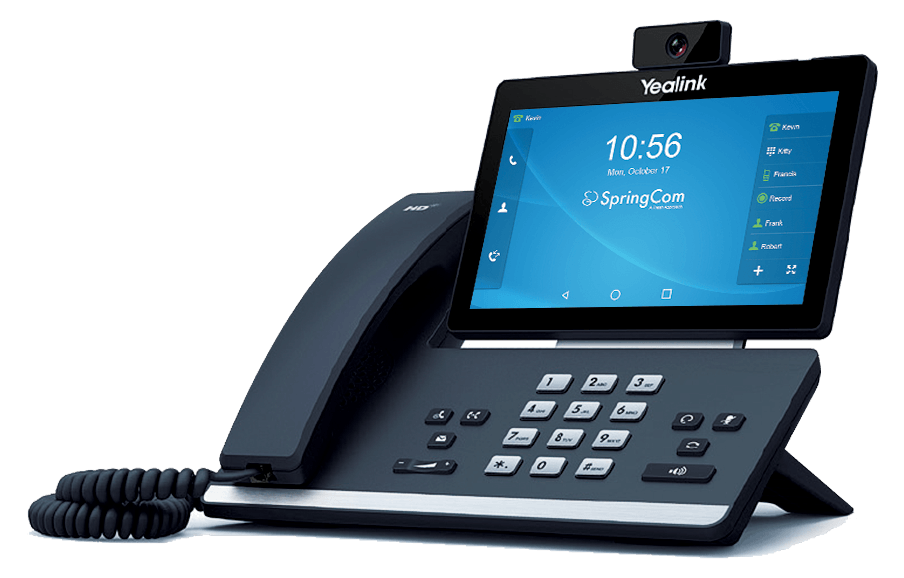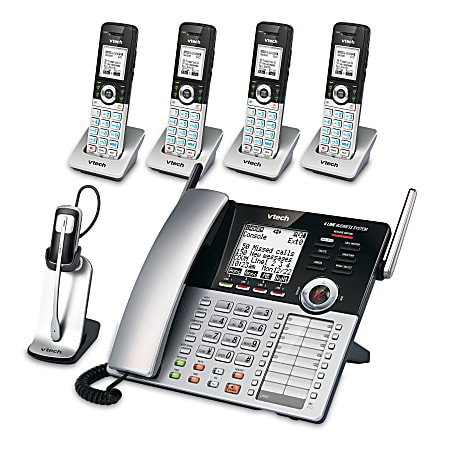A business phone system is essential for any company. It helps streamline communication and boost productivity.
In today’s fast-paced business world, efficient communication is crucial. A business phone system offers more than just basic calling features. It integrates with other tools, supports remote work, and can scale with your business growth. Whether you’re a small startup or a large corporation, choosing the right phone system can make a significant difference.
It can improve customer service, reduce costs, and enhance collaboration. With so many options available, it’s important to understand what features and benefits each system offers. This blog will guide you through the essentials of a business phone system and help you make an informed decision.

Credit: infinititelecommunications.com.au
Introduction To Business Phone Systems
Choosing the right business phone system can significantly impact your company’s communication. From small startups to large enterprises, having a reliable phone system is essential. This post will introduce you to the basics of business phone systems and their importance.
Importance For Businesses
Business phone systems enhance communication within a company. They connect employees and clients seamlessly. A good phone system ensures clear, uninterrupted calls. It helps in managing customer inquiries efficiently. This improves customer satisfaction and trust. A phone system also facilitates internal communication. It supports collaboration among team members, regardless of their location.
Evolution Over Time
Business phone systems have evolved significantly. Early systems relied on manual switchboards. Operators connected calls by plugging cables. This was slow and inefficient. Then came the automatic switchboards. They used rotary dials and improved call routing. The introduction of digital systems was a game changer. They offered better clarity and additional features.
Today, modern phone systems use VoIP technology. VoIP stands for Voice over Internet Protocol. It allows calls over the internet. This reduces costs and offers more flexibility. Features like call forwarding, voicemail, and video conferencing are now standard. These advancements have made business communication more efficient and versatile.

Credit: telcodepot.com
Types Of Business Phone Systems
Choosing the right phone system for your business is crucial. There are different types of business phone systems available. Each type serves different needs and offers unique benefits. Understanding these options helps make an informed decision.
Traditional Landline
Traditional landlines use copper wires to connect calls. These systems are reliable and have been used for decades. Many businesses trust landlines for their stability. They often require on-site hardware and regular maintenance. Landlines can be costly but offer excellent call quality. They are a good fit for businesses with stable office locations.
Voip Systems
VoIP stands for Voice over Internet Protocol. These systems use the internet to make calls. VoIP systems are flexible and cost-effective. They do not need extensive hardware. Many businesses prefer VoIP for its modern features. VoIP systems allow for easy scalability. This makes it ideal for growing businesses.
Key Features
Understanding the key features of a business phone system can help you choose the right one for your company. Here are some essential features that make a significant difference in communication.
Call Forwarding
Call forwarding ensures you never miss important calls. This feature allows calls to be redirected to another phone or mobile device. It is especially useful if you are out of the office. You can stay connected and responsive to clients, even on the go. Many systems offer customizable options, so you can set rules for forwarding calls based on time of day or caller ID.
Voicemail
A robust voicemail system is crucial for any business. It allows callers to leave messages when you are unavailable. Modern systems offer voicemail-to-email functionality. This means you can receive voicemails directly in your inbox. It is convenient and ensures you can easily keep track of messages. Some systems even transcribe voicemails into text, making it quicker to read and respond.
Conference Calling
Conference calling is vital for team collaboration. It enables multiple participants to join a single call. This feature is perfect for team meetings, client calls, and remote work. Some systems offer video conferencing, adding a visual element to the conversation. It helps in creating a more interactive and engaging meeting environment. Look for systems that allow easy setup and management of conference calls.
| Feature | Benefits |
|---|---|
| Call forwarding | Stay connected anywhere, customizable forwarding rules |
| Voicemail | Voicemail-to-email, message transcription |
| Conference calling | Easy team collaboration, video conferencing |
Choosing The Right System
Choosing the right business phone system is crucial for seamless communication. It ensures efficiency and supports your company’s growth. Here’s a guide to help you make an informed decision.
Assessing Business Needs
Start by evaluating your current communication requirements. Consider the following:
- Number of employees
- Call volume
- Remote work needs
- Customer service demands
Identify if your business needs features like:
- Voicemail
- Call forwarding
- Video conferencing
- Auto-attendant
Understanding these needs helps narrow down suitable options.
Budget Considerations
Establish a clear budget for your phone system. Include setup costs and ongoing expenses. Compare different plans to find the best value. Consider both upfront costs and monthly fees.
Here’s a sample comparison table:
| Plan | Upfront Cost | Monthly Fee | Features |
|---|---|---|---|
| Basic | $100 | $20 | Voicemail, Call Forwarding |
| Standard | $200 | $40 | Video Conferencing, Auto-attendant |
| Premium | $300 | $60 | All Features |
Choose a plan that balances cost and features. Ensure it meets your business needs.
Installation And Setup
Setting up a business phone system can seem daunting. But with the right guidance, it becomes a manageable task. There are two main methods for installation and setup: professional installation and DIY setup. Each has its own benefits and challenges. Understanding these options helps you decide the best approach for your business.
Professional Installation
Hiring professionals for installation ensures a seamless setup. Experts handle all technical aspects, reducing downtime. They provide end-to-end service, from wiring to configuration.
- Expertise: Technicians bring years of experience and knowledge.
- Efficiency: Quick and accurate setup minimizes disruptions.
- Support: Post-installation support ensures your system runs smoothly.
This option is ideal for businesses with limited IT resources. It also benefits those who want a hassle-free setup.
Diy Setup
A DIY setup allows flexibility and cost savings. Many modern systems offer user-friendly interfaces and detailed instructions. This makes it easier for non-technical staff to handle the setup.
- Unbox your system components.
- Connect the hardware as per the manual.
- Configure the software settings.
- Test the system to ensure everything works.
DIY setup is best for small businesses or those with tech-savvy employees. However, it requires attention to detail and some technical know-how.
Below is a comparison table to help you choose:
| Aspect | Professional Installation | DIY Setup |
|---|---|---|
| Cost | Higher | Lower |
| Time | Faster | Slower |
| Expertise | Required | Not Required |
| Support | Available | Limited |
Each option has unique advantages. Choose the one that aligns with your business needs.

Credit: www.odpbusiness.com
Maintenance And Support
Having a reliable business phone system is crucial for any organization. Yet, maintaining and supporting it can be challenging. Proper maintenance and support ensure smooth communication and prevent downtime.
Regular Maintenance
Regular maintenance of your business phone system is essential. It helps to identify and fix potential issues early. Routine checks can include:
- Inspecting hardware for wear and tear.
- Updating software to the latest version.
- Backing up phone system data.
- Testing the system for any glitches.
These steps can prolong the life of your phone system. They also help to maintain optimal performance.
Technical Support
Technical support plays a vital role in a business phone system. It ensures that any issues are quickly resolved. Here’s what effective technical support should offer:
- 24/7 availability: Issues can arise at any time. Round-the-clock support is crucial.
- Expert troubleshooting: Skilled technicians can diagnose and fix problems efficiently.
- Remote assistance: Quick solutions without the need for an on-site visit.
- Regular updates: Keeping the system up-to-date to avoid vulnerabilities.
Having a dedicated support team ensures peace of mind. It allows you to focus on your core business activities.
| Maintenance Task | Frequency |
|---|---|
| Hardware Inspection | Monthly |
| Software Update | Quarterly |
| Data Backup | Weekly |
| System Testing | Bi-Annually |
Implementing these maintenance tasks can prevent unexpected downtime. It ensures that your business phone system runs smoothly.
Security Considerations
In today’s digital age, securing your business phone system is vital. A secure phone system protects sensitive information and maintains business integrity. Below, we explore essential security considerations.
Data Encryption
Data encryption protects your communication. It scrambles data, making it unreadable to unauthorized users. This ensures that even if data is intercepted, it remains secure.
Using strong encryption protocols such as AES or TLS is crucial. These encryption methods are widely recognized for their security and efficiency.
Moreover, ensure that the phone system encrypts data both in transit and at rest. This double-layer protection minimizes the risk of data breaches.
| Encryption Protocol | Benefit |
|---|---|
| AES (Advanced Encryption Standard) | High security, widely adopted. |
| TLS (Transport Layer Security) | Secure communication over networks. |
Preventing Fraud
Fraud prevention is another critical aspect. Phone fraud can lead to significant financial losses and damage your business’s reputation.
Implementing robust authentication methods is essential. Use two-factor authentication (2FA) to add an extra layer of security. 2FA requires users to verify their identity using two methods.
Monitor call activity regularly to detect any unusual patterns. Suspicious calls or high call volumes can indicate fraudulent activity.
Set up alerts for abnormal usage. Immediate notifications can help you respond quickly to potential threats.
- Enable two-factor authentication (2FA)
- Regularly monitor call activity
- Set up alerts for suspicious behavior
Lastly, educate your employees about common fraud tactics. Awareness is a powerful tool in preventing fraud.
Future Trends
The future of business phone systems looks promising. New trends are shaping the way businesses communicate. These trends will make business communication easier and more efficient. Two key trends are integration with AI and mobile integration.
Integration With Ai
AI is changing business phone systems. AI can help with call routing. It can direct calls to the right person. This saves time for employees and customers. AI can also help with voice recognition. It can understand customer requests and provide answers. This improves customer service.
Mobile Integration
Mobile phones are part of daily life. Business phone systems are now integrating with mobile phones. Employees can use their mobile phones for work calls. This makes remote work easier. Mobile integration also means employees can be reached anytime. This increases productivity and flexibility.
Frequently Asked Questions
What Is A Business Phone System?
A business phone system is a multi-line telephone network designed to improve communication within an organization. It offers features like call forwarding, voicemail, and conferencing, enhancing efficiency and productivity.
How Does Voip Work?
VoIP (Voice over Internet Protocol) converts voice into digital signals. These signals travel over the internet, enabling phone calls via computers, VoIP phones, or traditional phones with adapters.
Why Choose A Cloud-based Phone System?
A cloud-based phone system offers flexibility, scalability, and cost savings. It eliminates the need for physical hardware and allows remote access, making it ideal for modern businesses.
What Are The Benefits Of A Pbx System?
A PBX (Private Branch Exchange) system provides advanced call management, reduces costs, and improves internal communication. It supports multiple lines and features like call routing, voicemail, and conferencing.
Conclusion
A business phone system can greatly improve your company’s communication. It streamlines calls and enhances customer service. Efficient communication means better productivity. Don’t overlook the importance of a reliable phone system. Choose one that fits your needs. Make an informed decision.
Your business will benefit from clear, effective communication.




